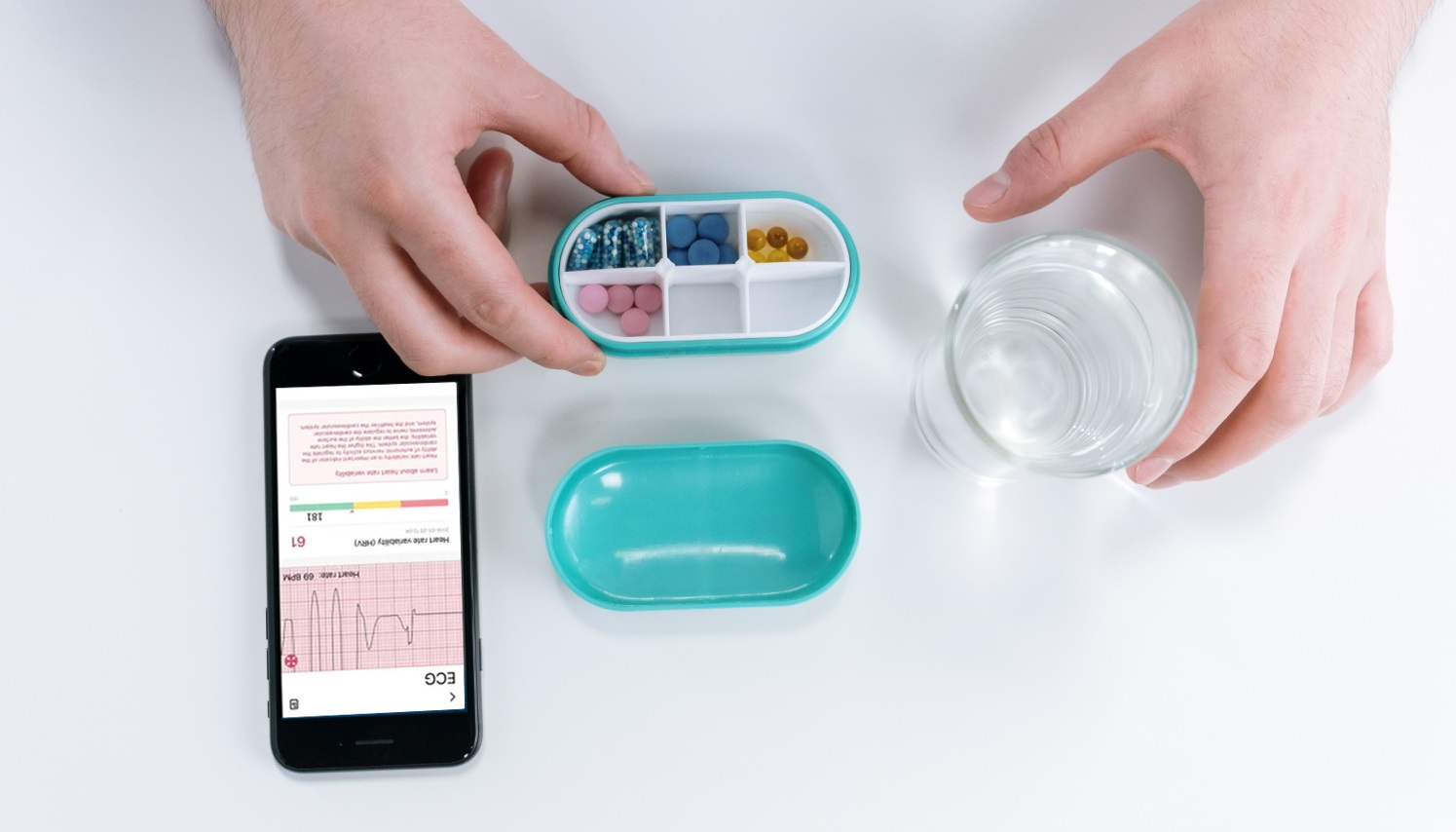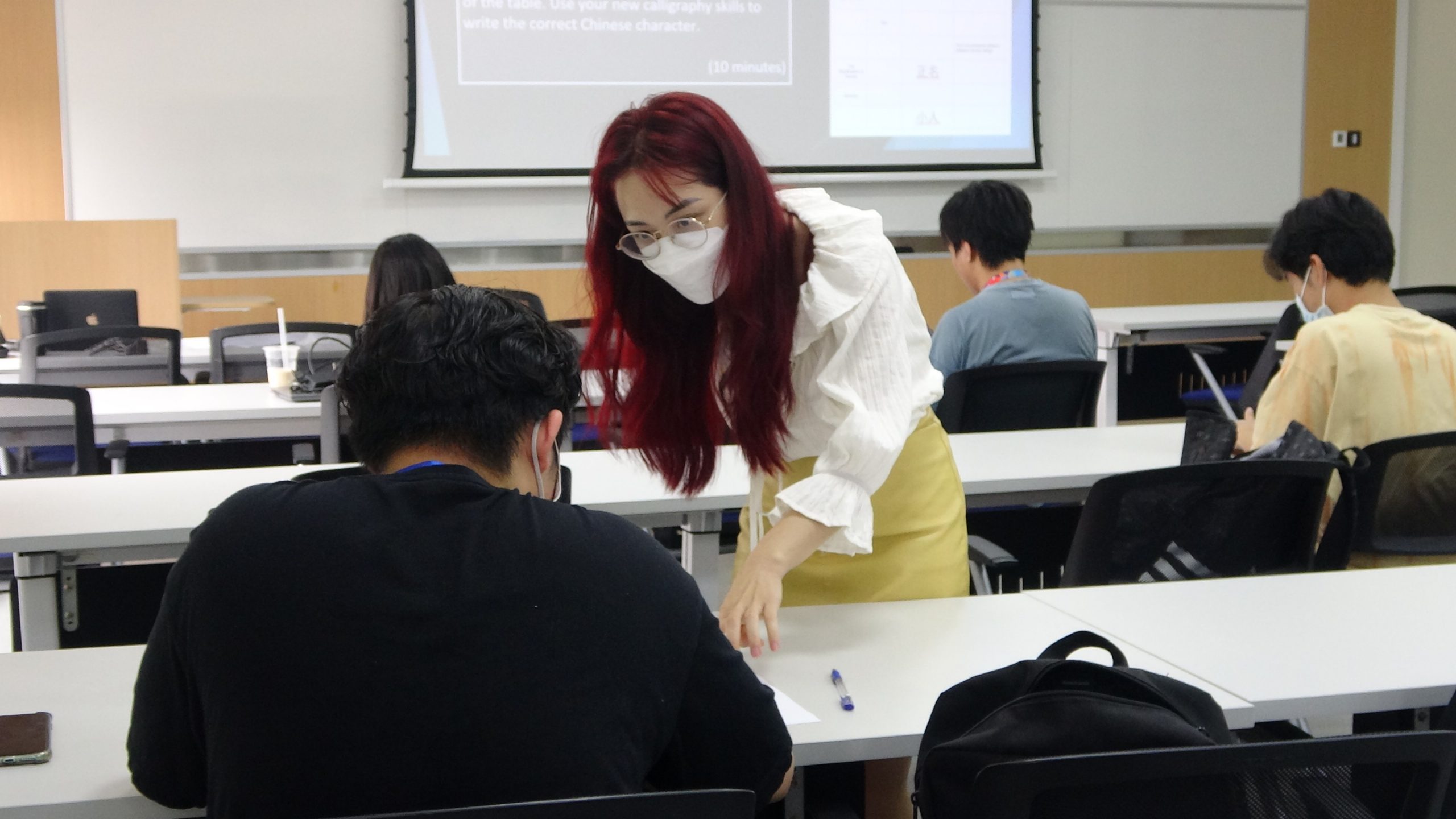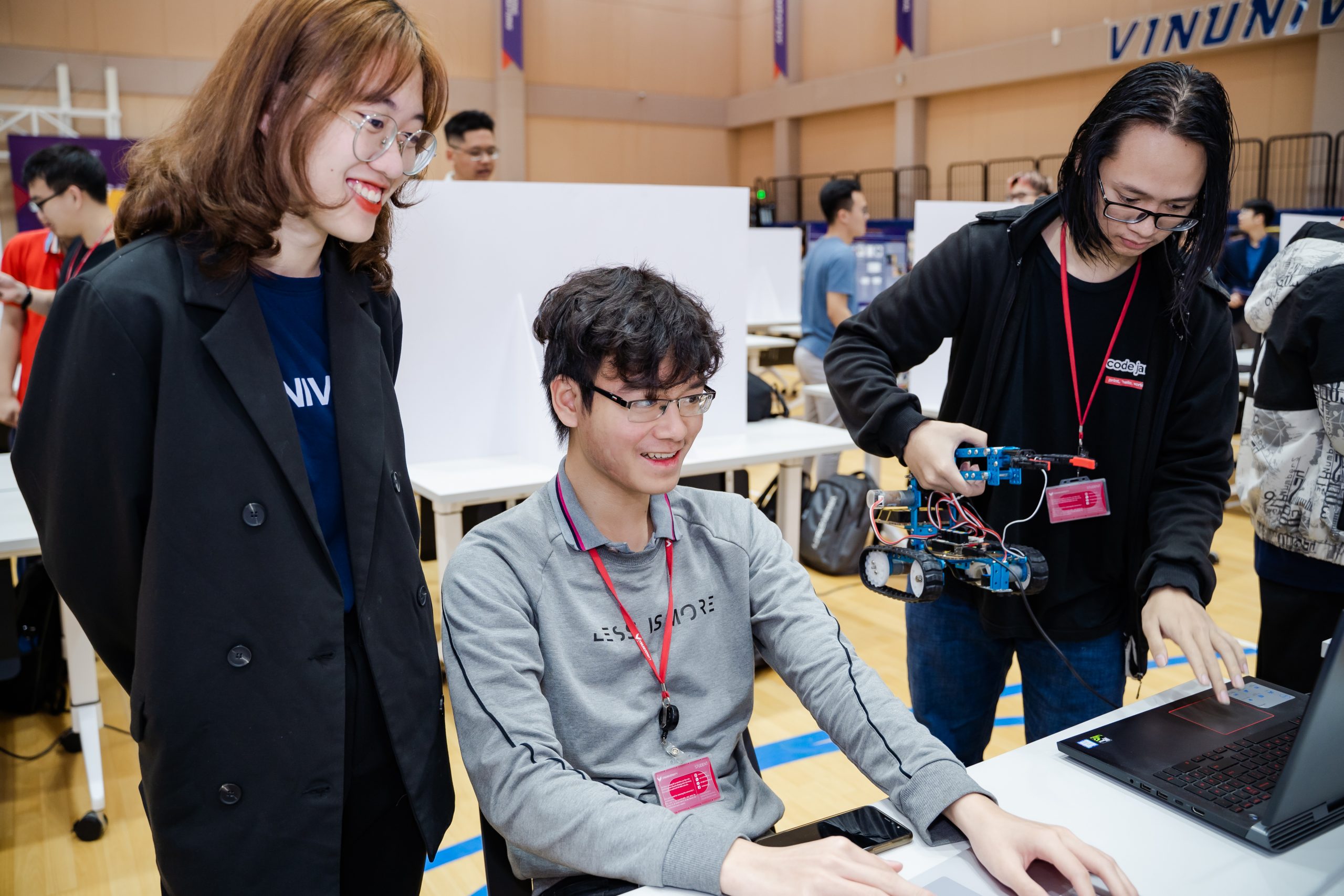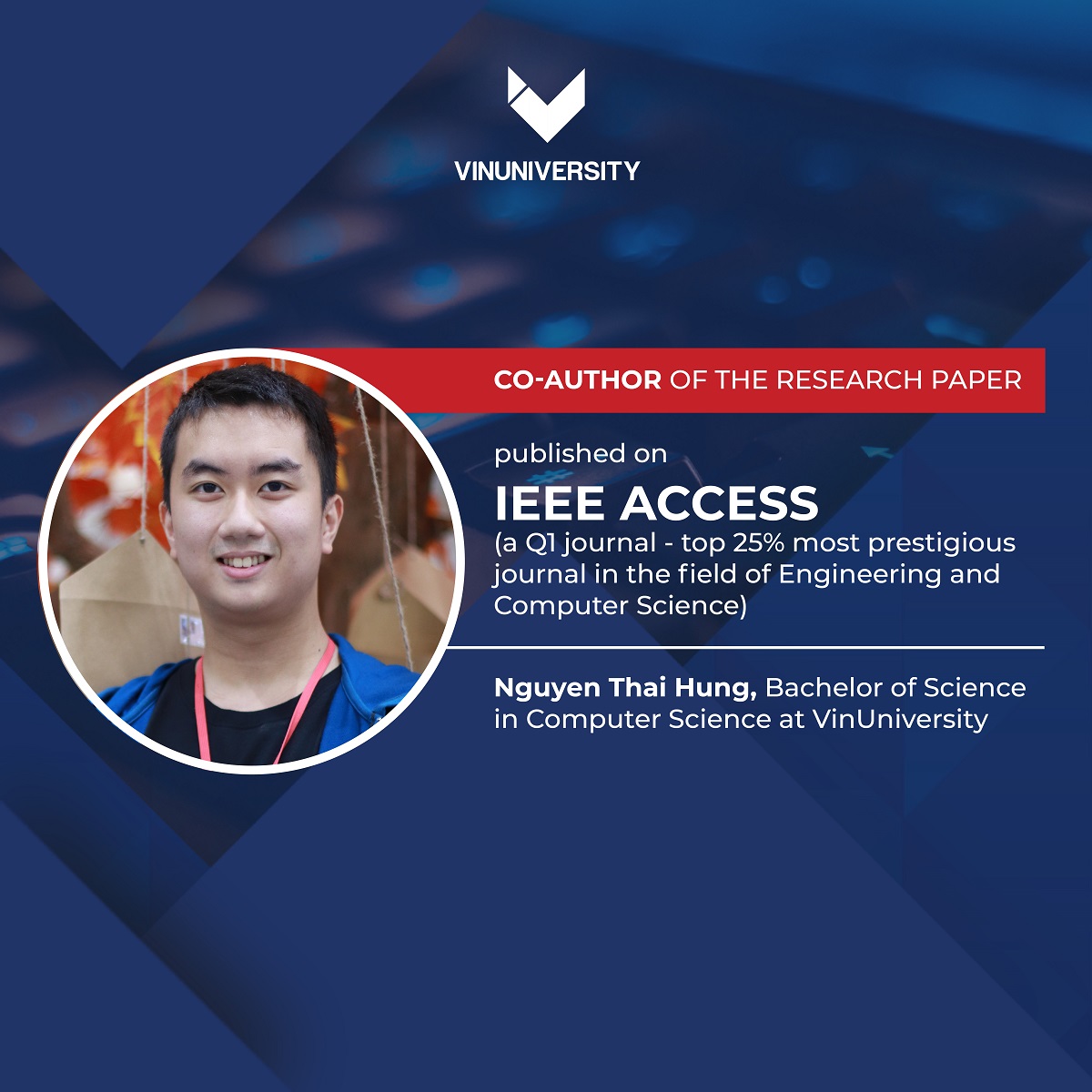VinUniversity students participating in mobile app development for cardiovascular disease diagnosis
An electrocardiogram (ECG) is a graph showing recordings of rhythms of the electrical signals of the heart. A myocardial contraction (i.e. a contraction of the muscles of the heart) generates electrical signals, which translate into waves on the ECG. By reading the ECG output, doctors can detect cardiovascular diseases such as heart attack (myocardial infarction), arrhythmia, the possibility of heart failure, etc. As indicated by WHO statistics in 2016, cardiovascular disease is associated with 31% of deaths in Vietnam, however, only 13.6% of cardiovascular patients are examined at medical facilities [1]. Realizing the critical necessity of integrating technology in the diagnosis of cardiovascular diseases, Dr. Do Danh Cuong, Assistant Professor in the College of Engineering and Computer Science, VinUniversity, together with first-year student Phan Nhat Huy as his research assistant, has conducted research on mobile application development for diagnosing the disease with a signal rhythm screening algorithm that can detect abnormalities in the electrocardiogram.

Dr. Do Danh Cuong holds a Ph.D. Degree in Electrical Engineering from Cork Institute of Technology, Ireland, with in-depth experience working and researching at Cambridge University, UK. Dr. Cuong knows a thing or two about impactful inventions: he is part of the inventor team that developed a new type of sensor with an impressive energy consumption at 1/1000 of its type. This invention was adopted by 8Power, Cambridge and IHI Corporation, Japan for Internet of Things projects.
Under the guidance of Dr. Do Danh Cuong, Nhat Huy took charge of data collection, raw data processing and creating standardized frameworks for conducting the experiments. Throughout the research process, Huy has been working diligently to identify high-efficiency computational solutions to detect abnormal signals of 12-lead ECG. “In addition to high efficiency, the computational model must have high processing speed for further deployment on mobile devices,” Huy shared.
Despite his various experience in academic competitions as well as previous research and practice, Nhat Huy has gained tremendous knowledge through this research. Huy revealed: “I had no experience creating standardization frameworks for experiment by myself, hence the pressure to get it right at the first time. But above all, my self-study and information research has enabled me to absorb a larger pool of knowledge more effectively.”
[1] https://www.who.int/vietnam/health-topics/cardiovascular-diseases










